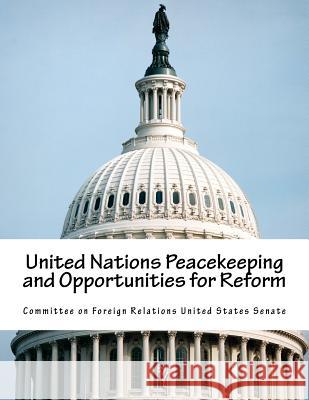United Nations Peacekeeping and Opportunities for Reform » książka
United Nations Peacekeeping and Opportunities for Reform
ISBN-13: 9781546476672 / Angielski / Miękka / 2017 / 68 str.
As a permanent member of the United Nation Security Council and the largest contributor to the U.N. peacekeeping budget, the U.S. has a particular interest in how U.N. peacekeeping mandates are set and operations are carried out. Because the United States cannot be everywhere all the time, there is an important role for U.N. peacekeeping in supporting U.S. interests with respect to security and stability around the world. U.N. peacekeeping is evolving in many ways. Traditionally, missions have focused primarily on negotiating peace agreements, inserting blue helmets to separate conflicting parties to implement these agreements, and generally monitoring and keeping the peace. U.N. peacekeepers now are being asked to take on new and difficult responsibilities, such as civilian protection, disarming active combatants, or developing the capacity to engage on the antiterrorism front. These new missions and mandates raise many questions. What are the risks when U.N. peacekeepers actively engage combatants in a warzone? Do U.N. peacekeepers forgo their neutrality in these instances? And if so, what are the implications for our interests? If U.N. peacekeepers are asked to provide logistics support in humanitarian crises such as the Ebola fight in West Africa, what challenges does that raise?
Zawartość książki może nie spełniać oczekiwań – reklamacje nie obejmują treści, która mogła nie być redakcyjnie ani merytorycznie opracowana.











